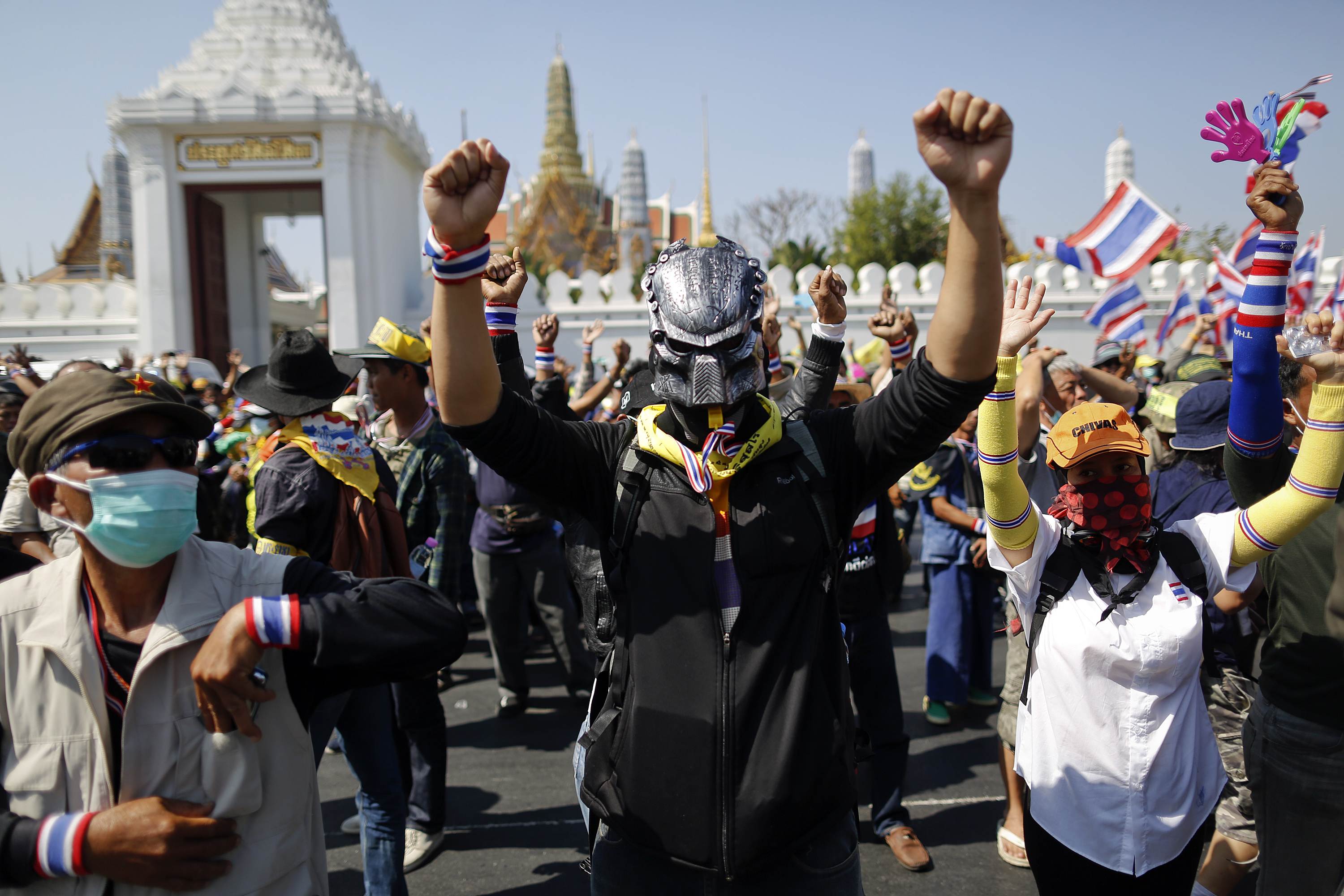BANGKOK – Protesters in Thailand are trying to overthrow the government and put in power an unelected "people's council" to force through electoral and other changes that would break the hold former premier Thaksin Shinawatra has over politics.
Prime Minister Yingluck Shinawatra, Thaksin's sister, has called an election for Feb. 2 but the protesters have rejected it.
The protesters want to suspend what they say is a fragile democracy commandeered by the self-exiled billionaire Thaksin, whom they accuse of nepotism and corruption. They want to eradicate the political influence of his family by altering electoral arrangements in ways they have not spelt out.
But Thaksin's numerous and passionate supporters, most of whom are in the countryside, are likely to protest if they feel that, once again, their interests are being dismissed by the Bangkok-based elite.
It is far from clear the election will be held. Rumours of a military coup are rife. Below are possible scenarios.
"Judicial coup"
Thailand's courts have been unusually active in recent weeks and have taken on several cases centred on attempts by Yingluck's Puea Thai Party to change the constitution.
Some 308 former lawmakers, most of them Puea Thai members, could face a charge of malfeasance in the Supreme Court for trying to amend the constitution to make the semi-appointed Senate a fully elected chamber, which has been ruled illegal.
The Constitutional Court is also handling a case about the legality of allowing international agreements to be made by the government without parliament having a say. The opposition Democrat Party has demanded that Yingluck and her ministers be banned from politics for this.
The politicised courts have banned Thaksin allies in the past and forced pro-Thaksin governments from power - something referred to as a "judicial coup". It is unclear what rulings could be handed down in the current cases, but they could include disqualifications from the election, bans on taking part in politics or dissolution of the Puea Thai party.
Army intervenes, anti-Thaksin regime installed
The coup-prone army has tried to stay neutral this time but the top brass shares the establishment's loathing of Thaksin.
The protests have been mostly peaceful and the government has avoided confrontation. But if violence intensifies, even if it is not clear who is responsible, the army could step in and seize power, ostensibly to prevent anarchy.
An interim government could be formed, appointed by judges and senators and approved by the king. Such an establishment-backed government might amend voting arrangements along the lines sought by the protesters, aiming to blunt Thaksin's sway over the electorate.
An election could then be held fairly quickly to silence international objections to military rule.
Yingluck party wins election
Doubts are growing that the election will be held, so this scenario is perhaps the least likely. But if it does go ahead, Puea Thai will use its vast war chest to promote its populist policies and voters are likely to turn out in force, especially in the party's bastions in the populous north and northeast. Yingluck's party should win again.
At that point, the anti-Thaksin protests might lose momentum and financial support. Backers among the royalist establishment could make a face-saving retreat by agreeing behind the scenes with Thaksin to allow his party to rule, on condition he stays in exile.
Yingluck forms a government with promises of reform and compromise. She addresses some of the protesters' grievances - watering down wasteful populist policies and tackling corruption, for instance - to try to pre-empt further confrontation, while distancing the government from Thaksin.
Yingluck's party wins but election is annulled
Even if Puea Thai wins convincingly, her opponents may not accept the result.
The election campaign will throw up allegations from the anti-Thaksin camp of cheating, irregularities and technical infringements in a bid to derail the ballot.
The Election Commission may decline to endorse the election. Even if it does, legal challenges could be mounted against the result in the courts.
The country would be in limbo and protesters who never accepted the election in the first place could intensify their fight against a caretaker government with no authority to make policy decisions. Military intervention is possible.
Election postponed indefinitely
Aware Yingluck is almost certain to win the election, the anti-Thaksin camp could use every legal means to scuttle it.
Multiple complaints are lodged with the courts or the Election Commission. One clear problem is the failure to register candidates in some southern provinces because of opposition to the vote from the protesters: that means parliament would not be able to convene because of the lack of a quorum.
Protests intensify and eventually either the commission or a court could rule the election cannot be held in good conditions. Again the country would be in limbo and the military could intervene.

























































